Windows 11 vs. Windows 10: AMD Ryzen Edition
Today we're taking a look at Windows 11 versus Windows 10 performance using AMD Ryzen processors. Recently we did the same with Intel's 10th and 11th-gen Core CPUs, but refrained from testing any AMD parts due to the known L3 cache latency performance issue.
As we were editing that piece, Microsoft and AMD released the fix, consisting of a Windows 11 update along with a new chipset driver. Many of you were waiting to see more performance figured around Ryzen CPUs, so here we are using the Ryzen 5 3600 and Ryzen 9 5950X.
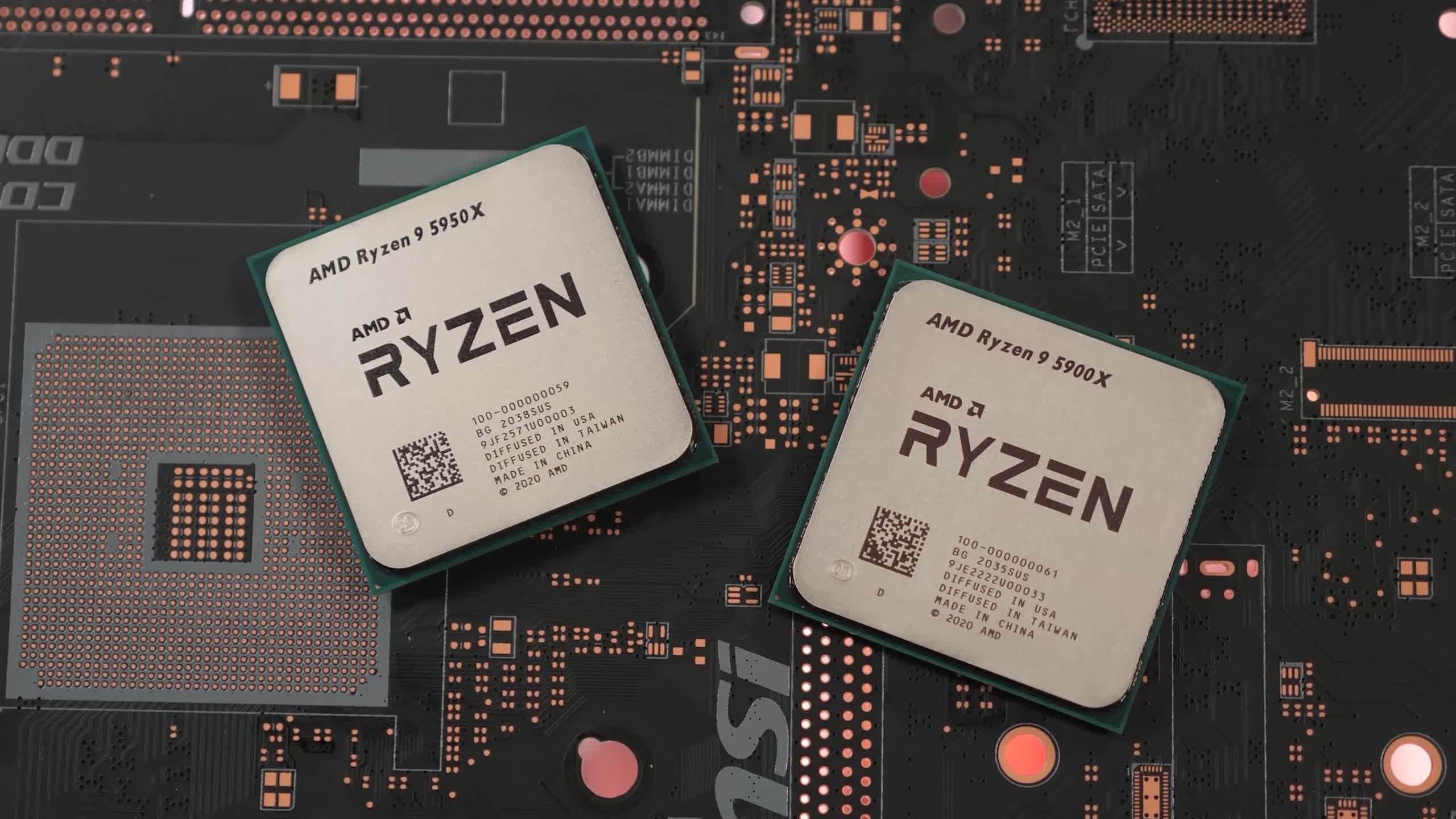
Both CPUs were tested installed on the Asus ROG Crosshair VIII Dark Hero motherboard using BIOS version 3801. For the memory, we've used a Crucial Ballistix DDR4-3200 CL16 kit and an MSI GeForce RTX 3090 Gaming X Trio graphics card. On the storage front, we used TeamGroup's 8TB MP34Q NVMe SSDs which are plenty fast, and we'll be including some SSD results towards the end of the article.
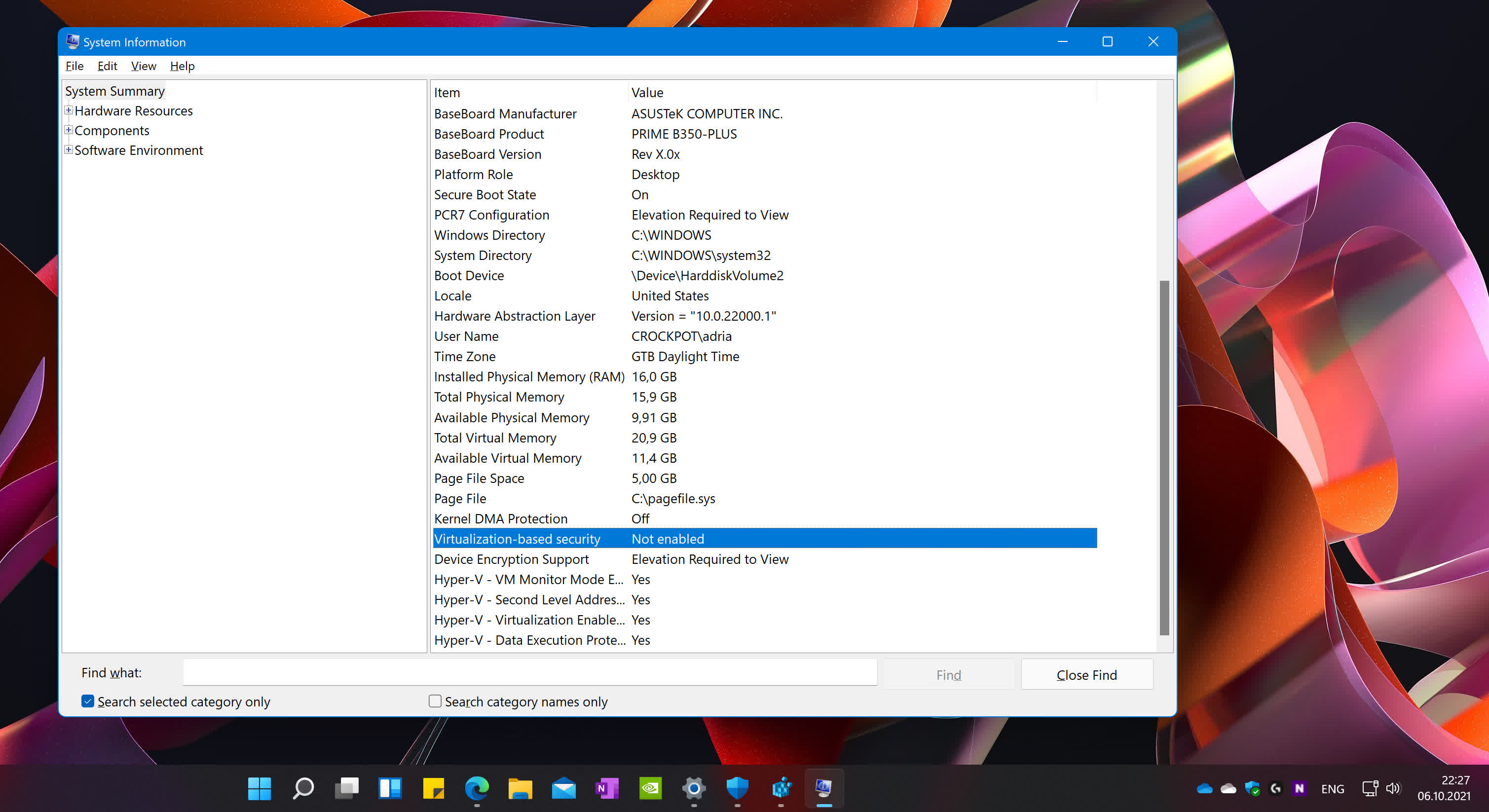
There are 5 test configurations in total, three with the 5950X and two with the 3600. The Ryzen 5 3600 compares Windows 10 performance with Windows 11 featuring the L3 cache latency fix. Then with the 5950X we're comparing Windows 10 to two Windows 11 configurations, one with the L3 fix and one without.
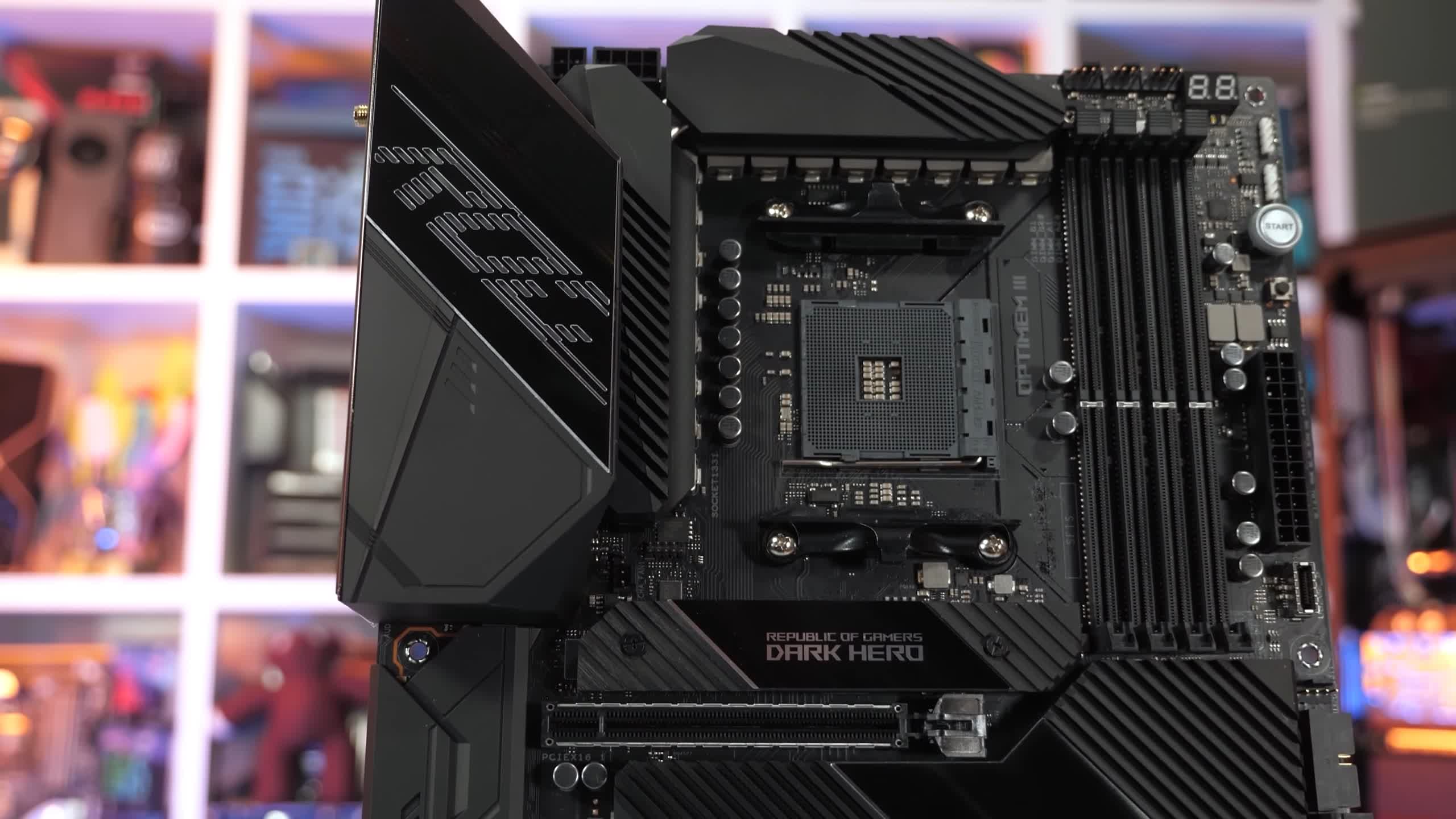
We'll be looking at application, gaming, storage and load time performance. All results are based on a 3-run average and in some instances we powered down the entire system between runs to avoid caching. Let's now get into the graphs...
Application Performance
Starting with AIDA64 cache and memory results, we see no real difference between the various configurations when comparing DRAM latency, L1 cache latency and L2 cache latency. However, here you can see just how bad L3 latency was prior to the fix with the 5950X's L3 latency pushed out to 36ns, which is roughly 3x greater than what it should be.
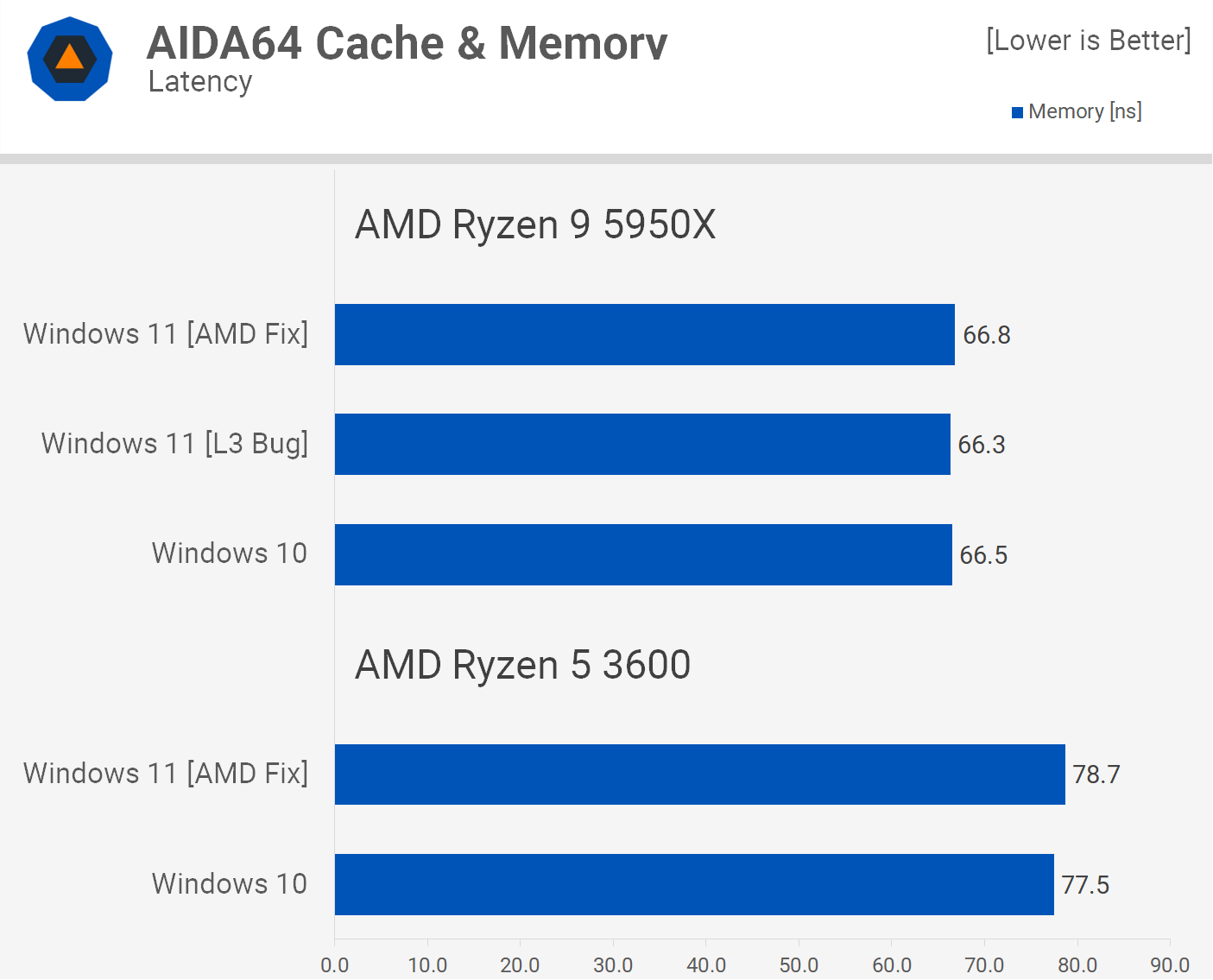
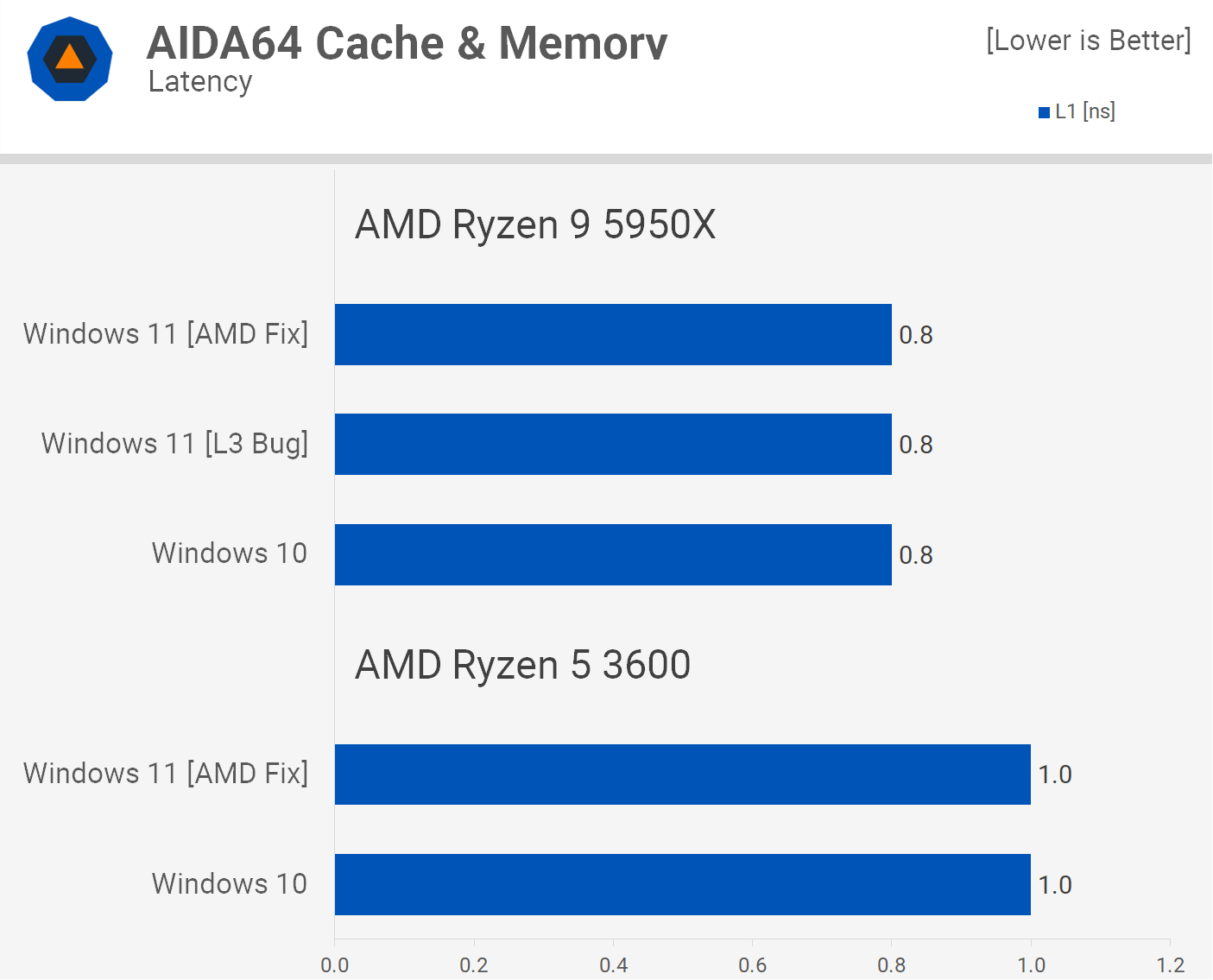

Thankfully AMD and Microsoft have now addressed that issue and therefore Windows 10 and Windows 11 should be comparable in that respect.
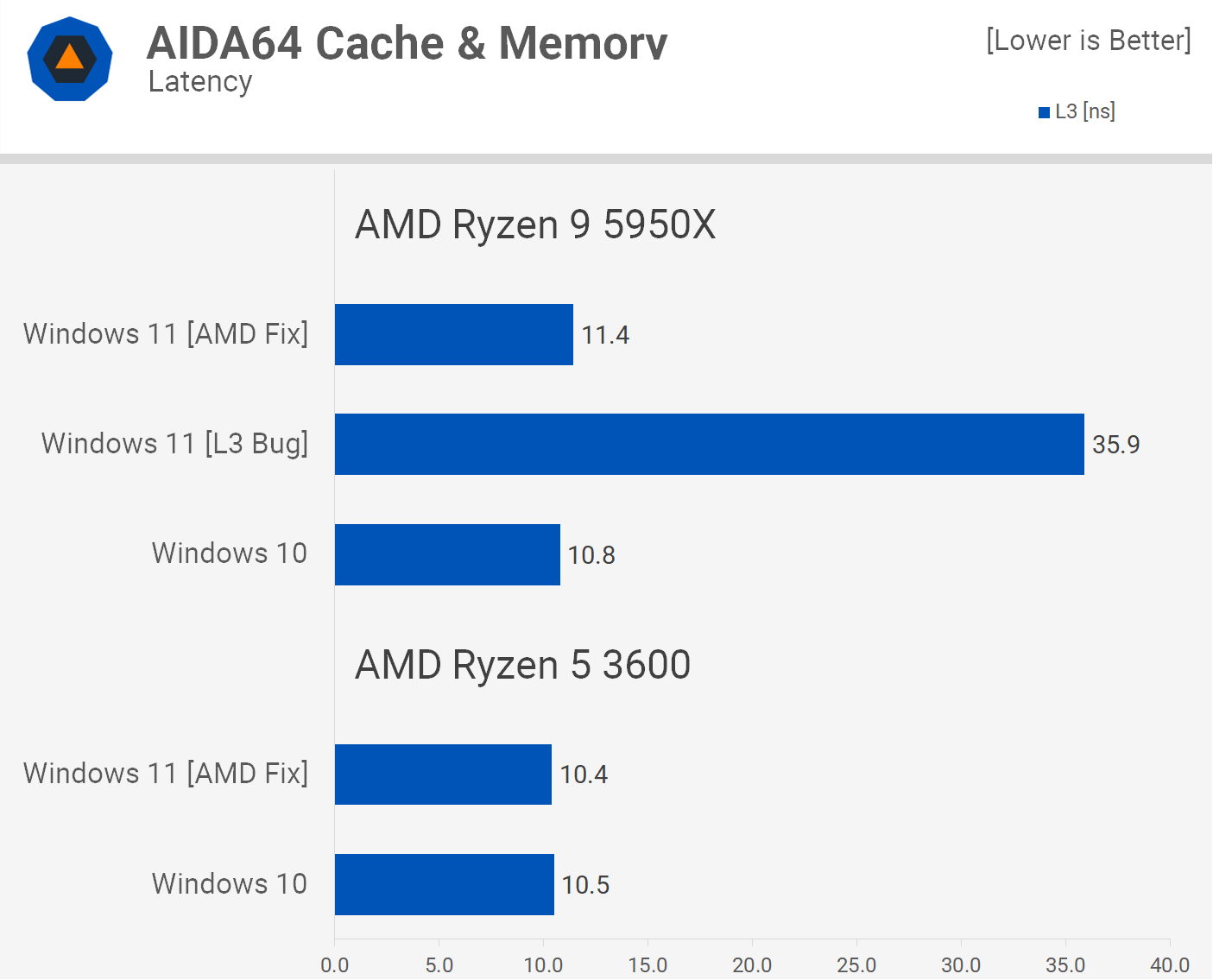
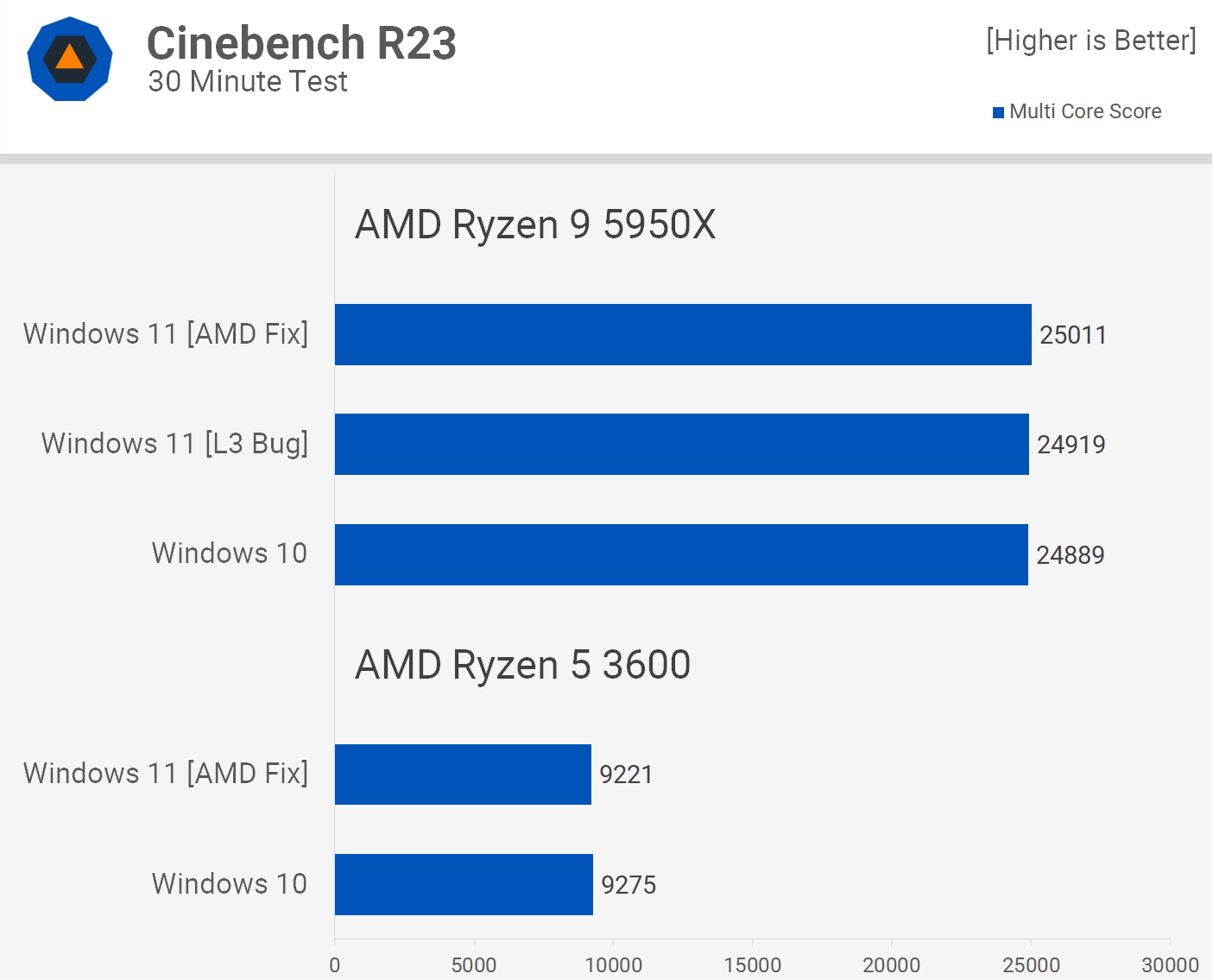
Moving on to Cinebench, we find some pretty boring results, though not entirely unexpected. Basically it doesn't matter which version of Windows you use, performance is going to be much the same and this was true even prior to the L3 cache latency fix.
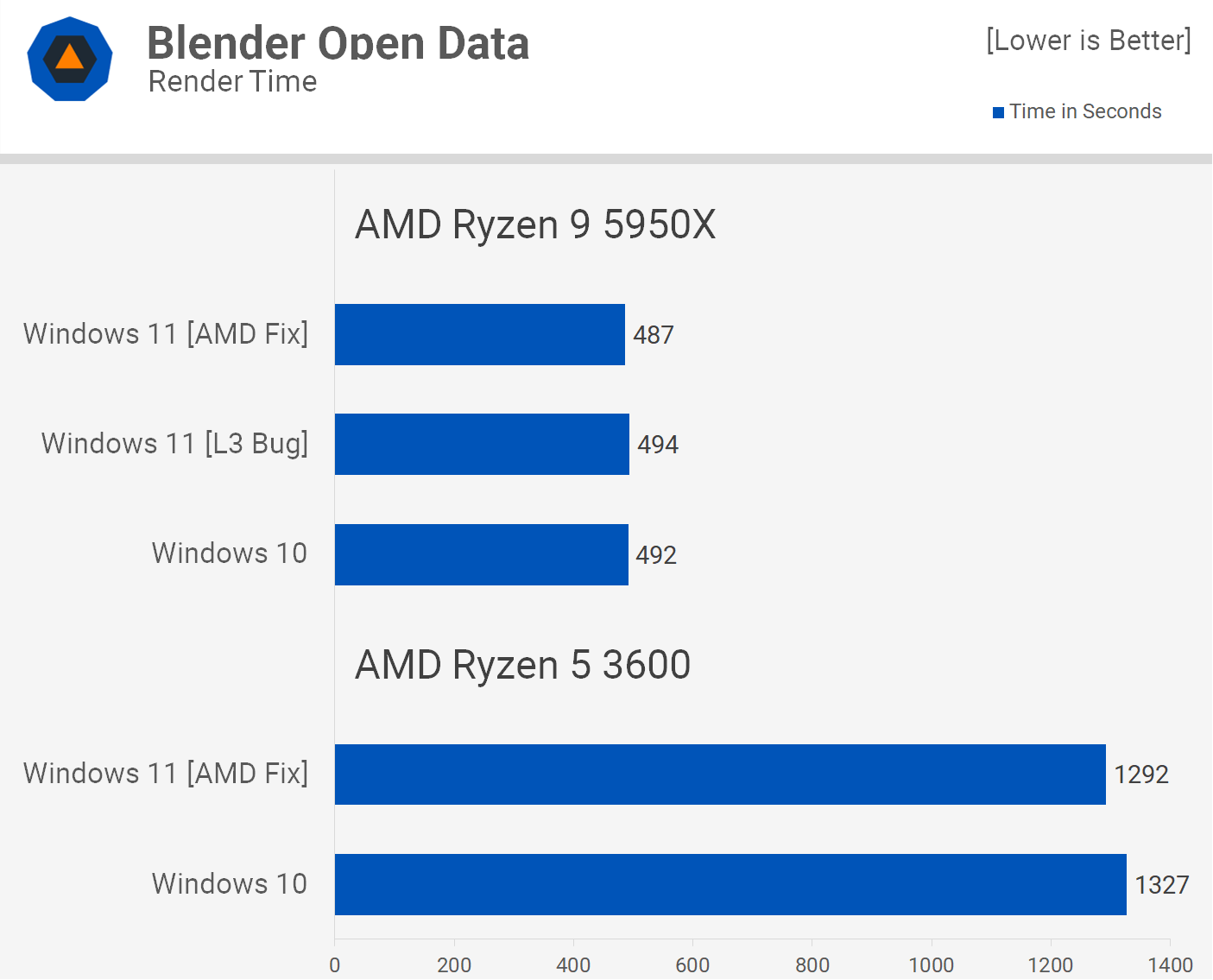
It's the same for the Blender Open Data benchmark, especially when looking at the Ryzen 9 5950X which sees less than a 1% deviation in performance. The R5 3600 was also similar though we do observe a 3% improvement with Windows 11, which I'd argue is quite insignificant.
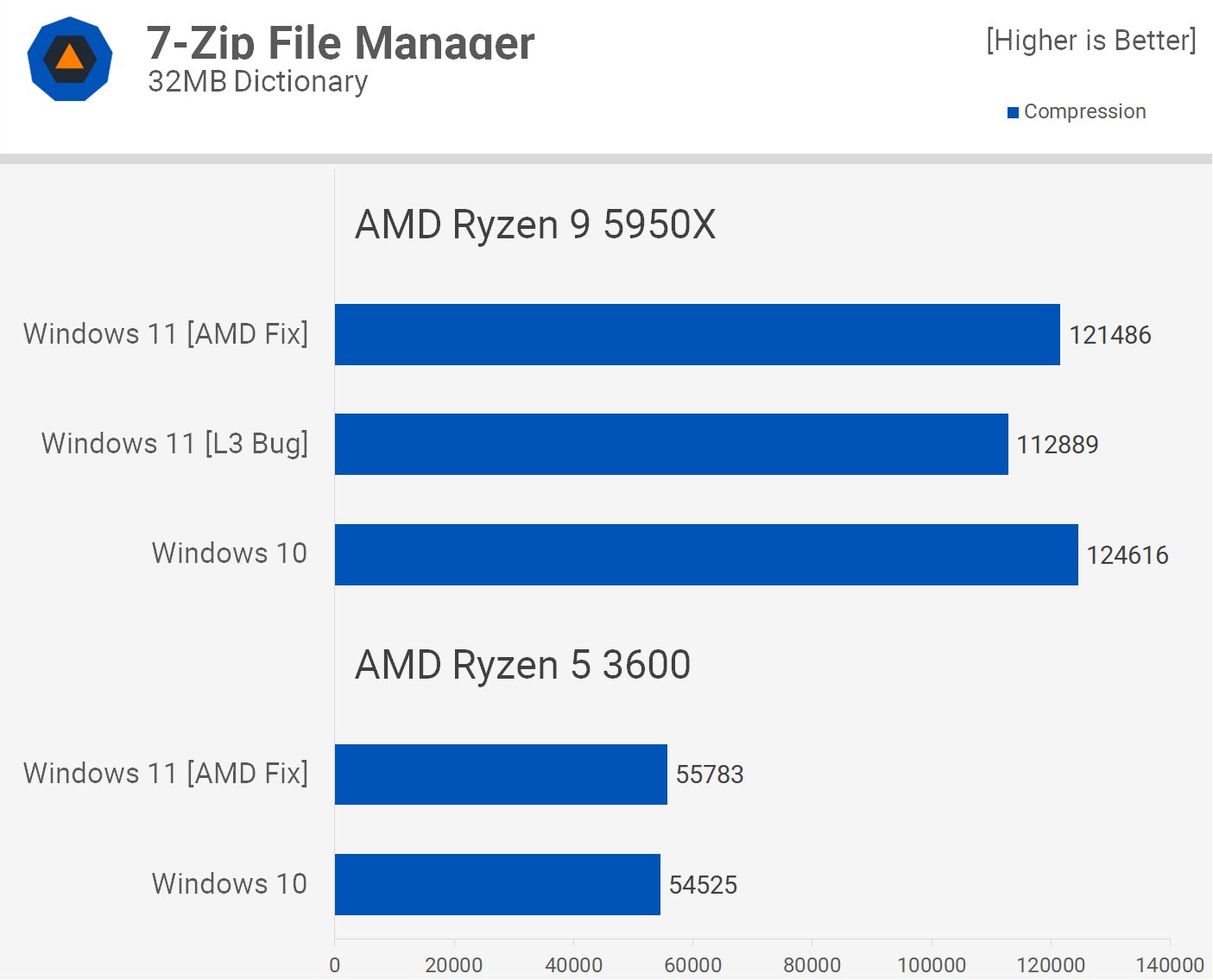

Moving on to 7-Zip results, we find for decompression work that there's little difference between the two operating systems. That said, the compression results are interesting as the Ryzen 9 5950X did suffer a 7% performance loss due to the L3 bug, which of course, has now been addressed and with the fix Windows 11 and 10 are the same.

Testing with Adobe Photoshop 2021 sees a 5% performance improvement for the R5 3600 when using Windows 11, which was interesting to see, especially given there was no performance improvement with the 5950X.

Then with Adobe After Effects 2021 we're looking at a 2% improvement with Windows 11 for both CPU configurations, while the L3 bug reduced performance by 4%, so not a big impact though it was consistently slower in our testing.
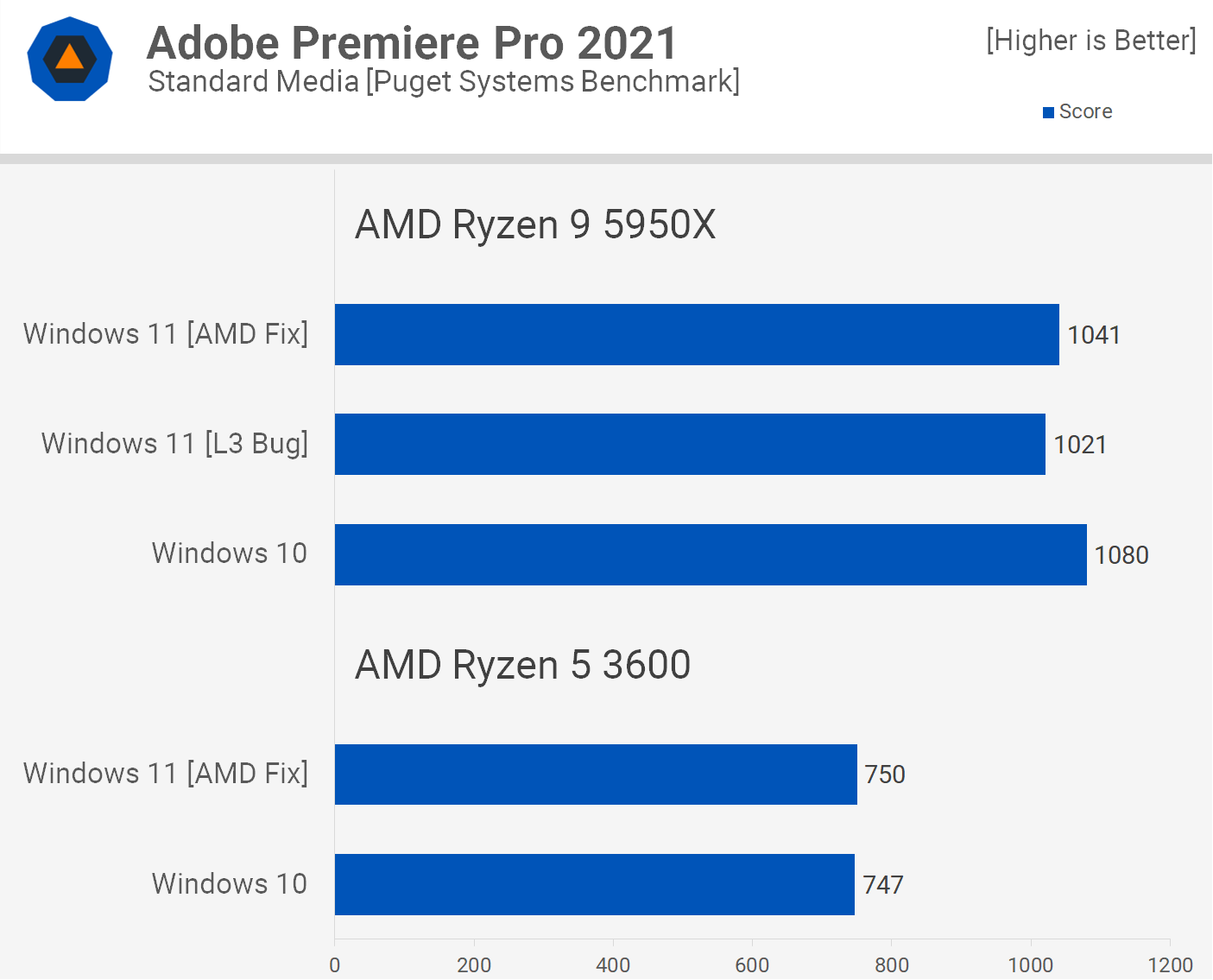
The last application benchmark we ran was Adobe Premiere Pro 2021 and this time the Ryzen 5 3600 delivered virtually identical results using either operating system, while the 5950X scored 4% higher with Windows 10.
Gaming Benchmarks
Moving on to some gaming benchmarks. F1 2021 saw the same performance across all tested configurations with the 5950X, even the L3 cache bug wasn't causing a drop in performance. The R5 3600 was on average 3% faster when running Windows 11, but that is a negligible difference.


Now these results really are interesting...
Tom Clancy's Rainbow Six Siege was repeatedly faster when using Windows 11 with either of the two processors, though it was more pronounced with Zen 3. Interestingly, the L3 bug saw Windows 11 performance close to Windows 10, but with the bug addressed Windows 11 is now consistently offering 5% more performance.
We saw a smaller 3% improvement with the R5 3600, but again Windows 11 was consistently faster by a small margin.
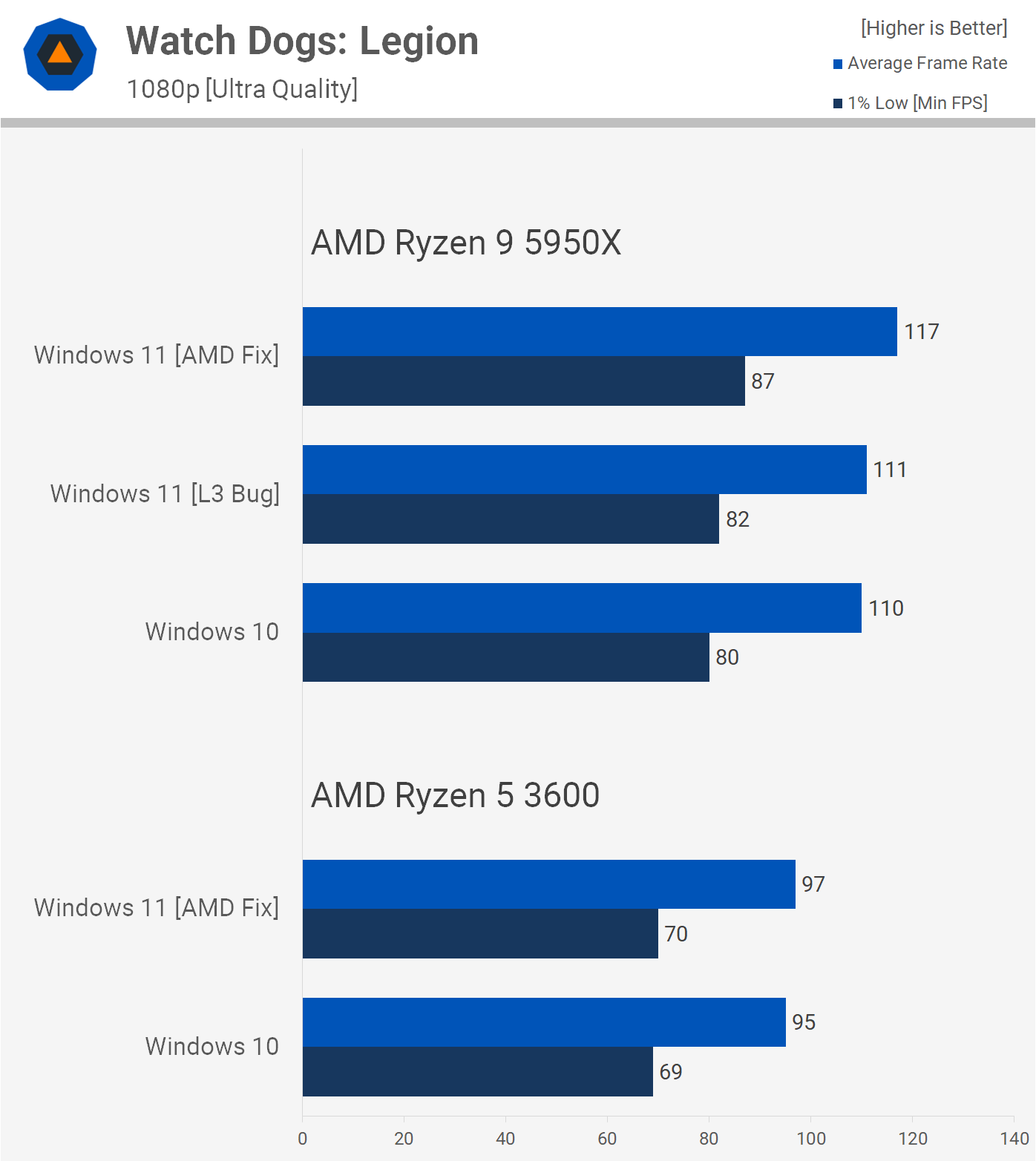
The Ryzen 9 5950X was also found to be faster when running Windows 11, again boosting performance by 5%. The R5 3600 was also faster using the newer operating system, though here the margin was just 2%.

The Cyberpunk 2077 results are similar to Rainbow Six Siege's and Watch Dogs Legion. Windows 11 offers a 5% performance boost with the 5950X and a smaller 2% boost with the R5 3600.
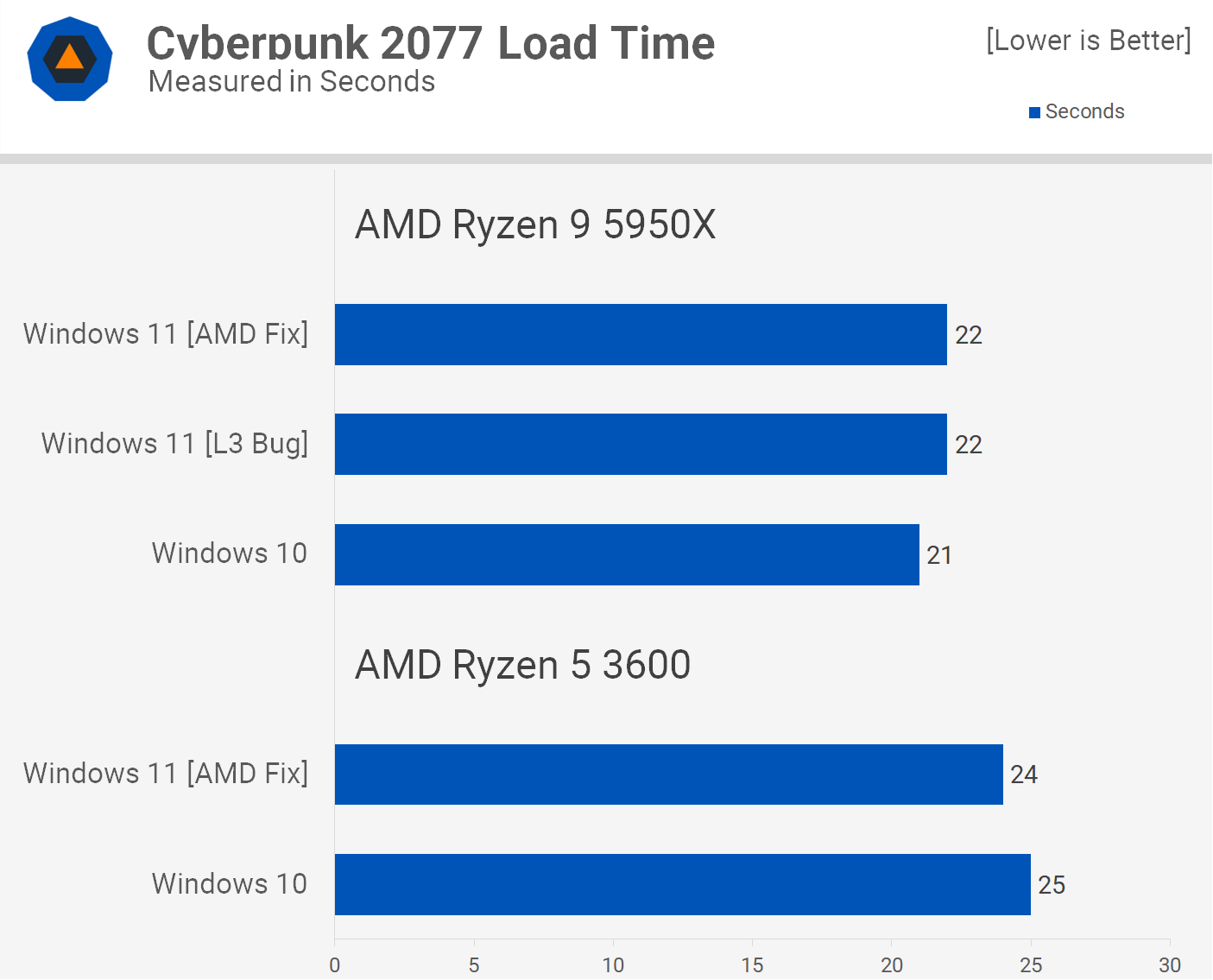
When it comes to game load times – or rather level load times – just as we found with the Intel CPUs, Windows 11 does nothing to cut down on those.
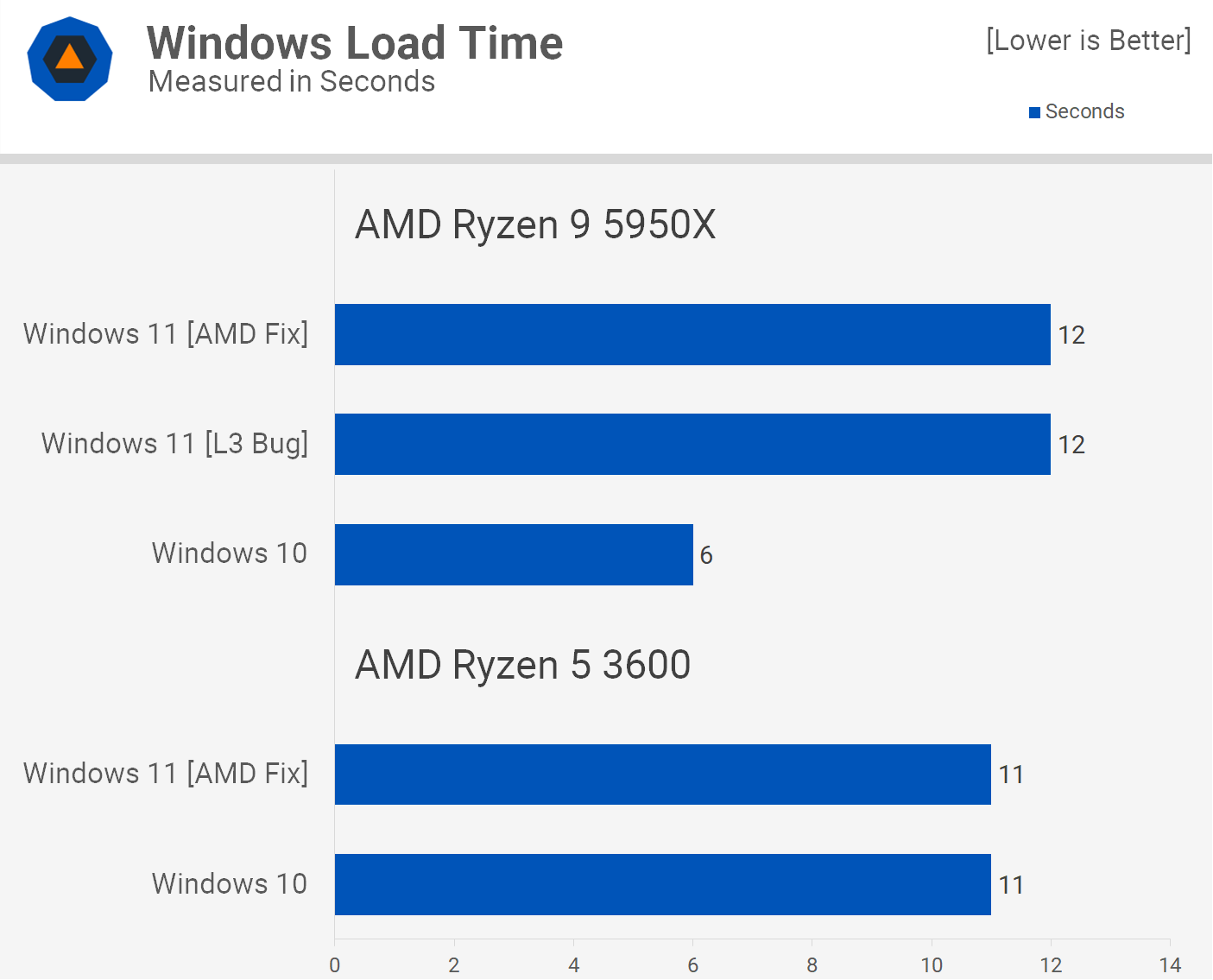
The Ryzen 5 3600 took 11 seconds to load Windows regardless of the version used. The 5950X was a little bit faster with Windows 10, taking 10 seconds to hit the desktop from the boot select menu in the BIOS. Meanwhile, Windows 11 took 12 seconds as it seemed to take longer to pass the loading screen. These results are inline with what we found when testing with the Intel CPUs.
Storage Performance
Finally, we have CrystalDiskMark storage results and when it comes to sequential throughput Windows 11 offers no performance advantage over Windows 10. However, just as we discovered when testing the Intel CPUs, Windows 11 appears to greatly improve random read and write performance.
With the 5950X we're looking at almost a 70% increase in write performance and over a 20% increase in read throughput. Again, this lines up with what we saw before when testing Intel Core processors.
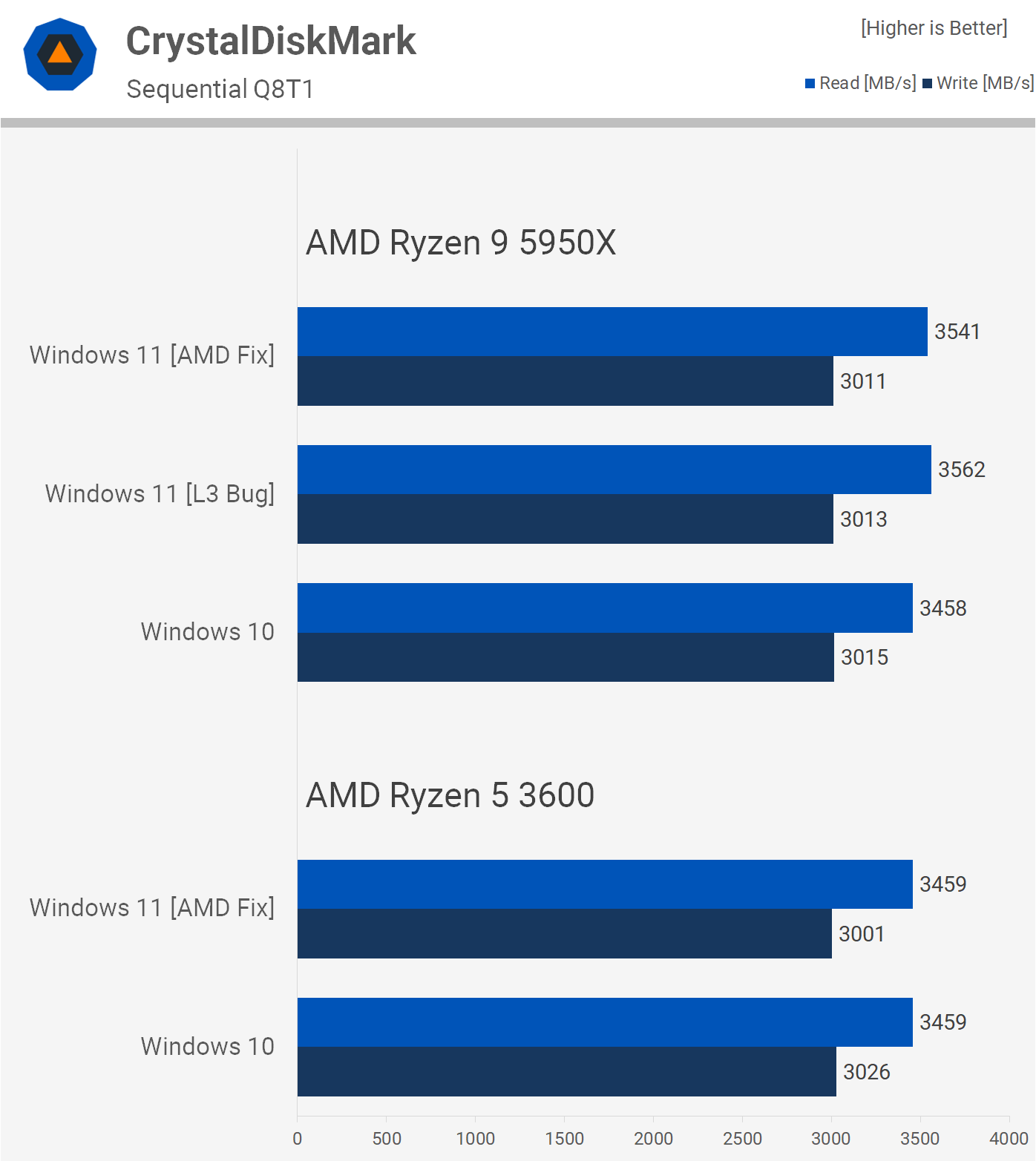
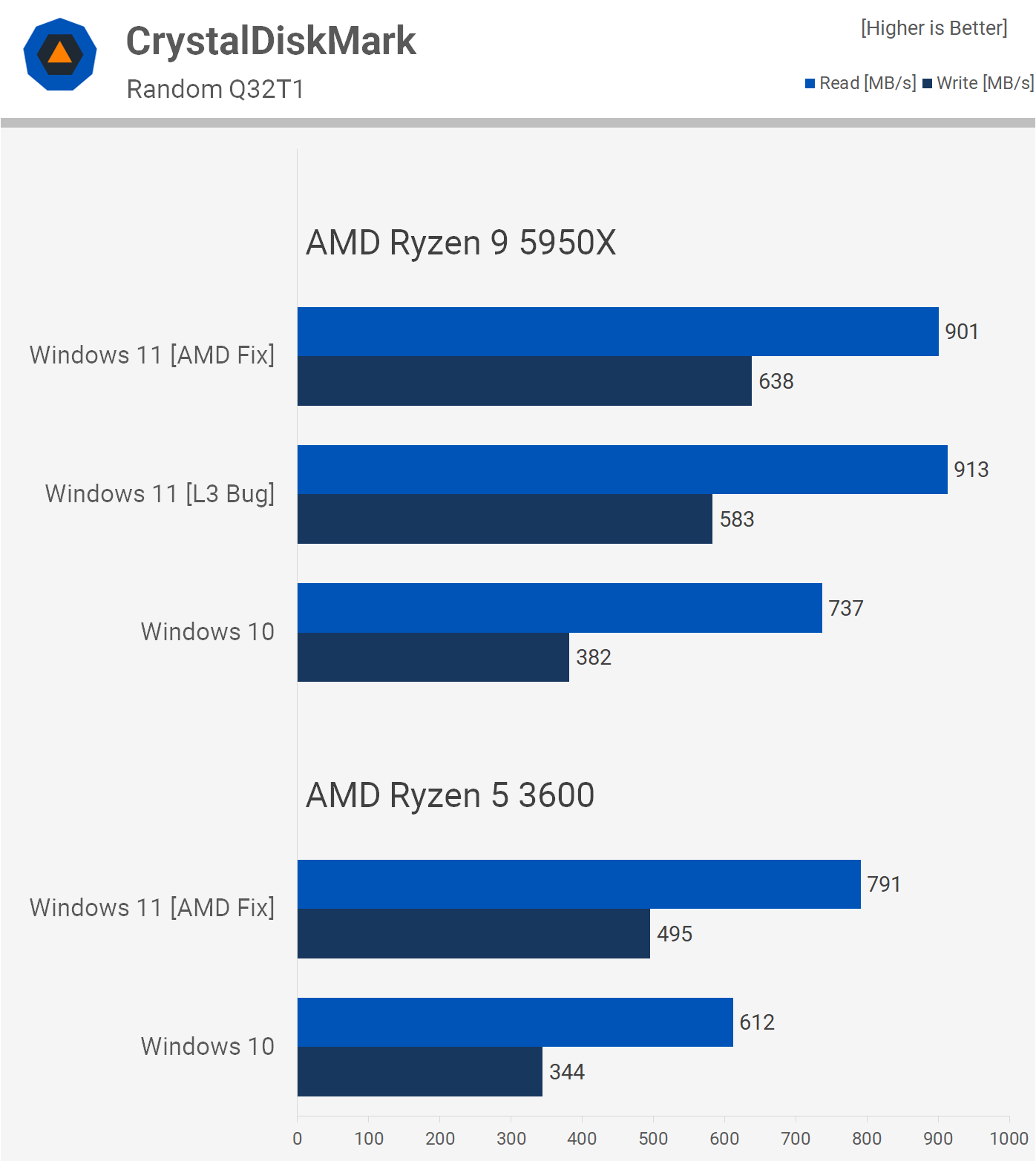
Big gains were also seen when using the Ryzen 5 3600 as write performance was boosted by 44% and read performance by 30%. I wasn't convinced the gains seen when testing the Intel CPUs were accurate, but having seen the same thing on a completely different platform with different installs of both operating systems, I'm now convinced this data is accurate.
What We Learned
Those results were only a bit more interesting than what we found when testing Intel's 10th and 11th-gen Core processors, which for the most part saw no performance difference between Windows 11 and 10 for applications and games.
The same is true with Ryzen, especially when looking at application performance. For games, it can vary from zero delta as was seen in F1 2021, to a small ~2-5% uplift with Windows 11. The Ryzen 9 5950X was often ~5% faster using the newer OS and while that's a trivial difference for gamers, it's less trivial for product reviews.
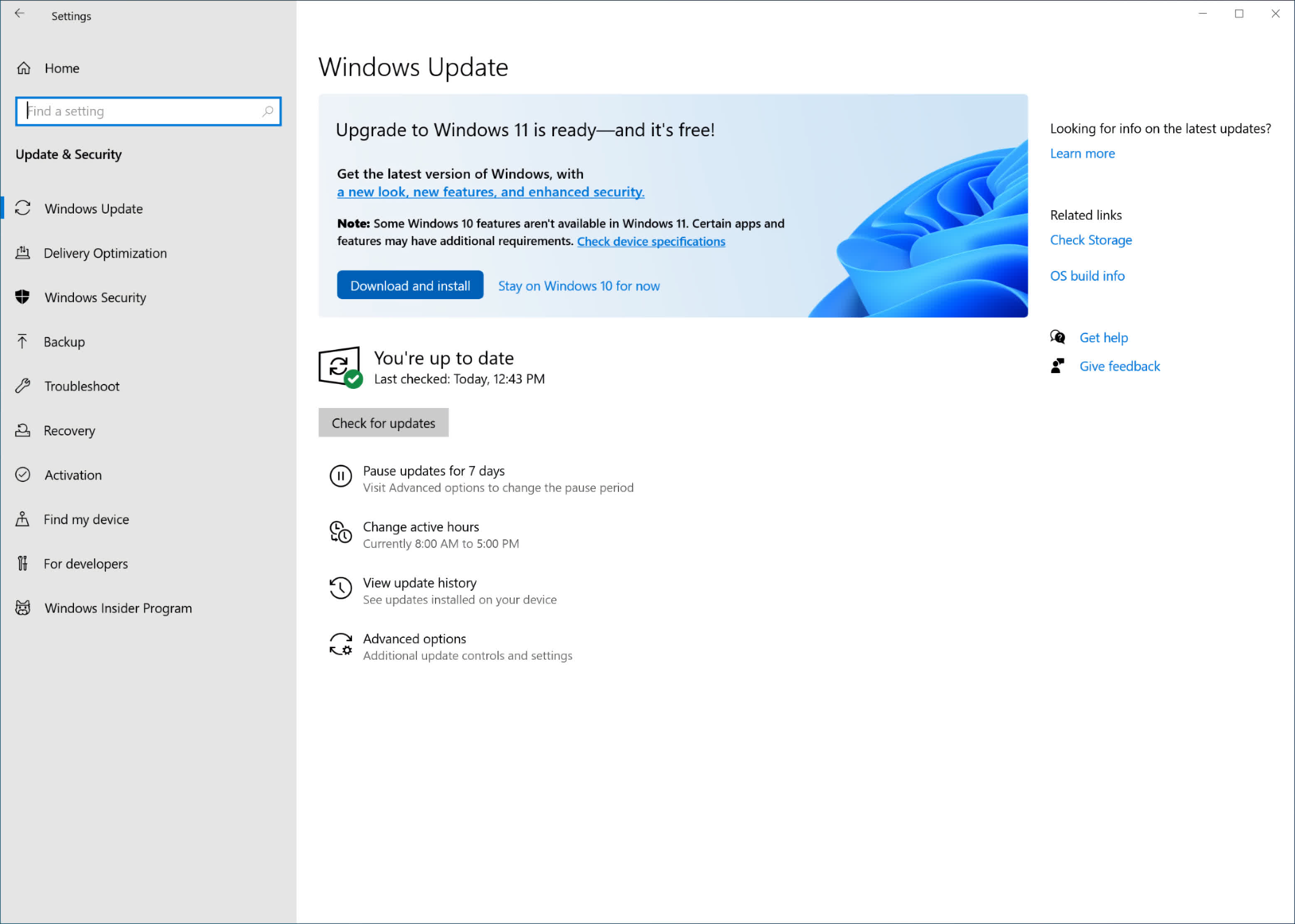
Initially we'd planned to take the practical route for our upcoming Intel Alder Lake CPU reviews, and that was to reuse the Windows 10 data we had already gathered for Ryzen and Intel processors. After all, we only have a limited amount of time to prepare that content and the thought of cramming the 12th-gen Core testing into a week along with all the other CPUs, wasn't a fun one.
But with Windows 11 consistently providing better gaming performance for Ryzen, even if it's only in the range of 2% to 5% for the games we tested, the more we grappled with the dilemma of what to do, and so the more it became clear that we are better off throwing out all the existing data and starting over.
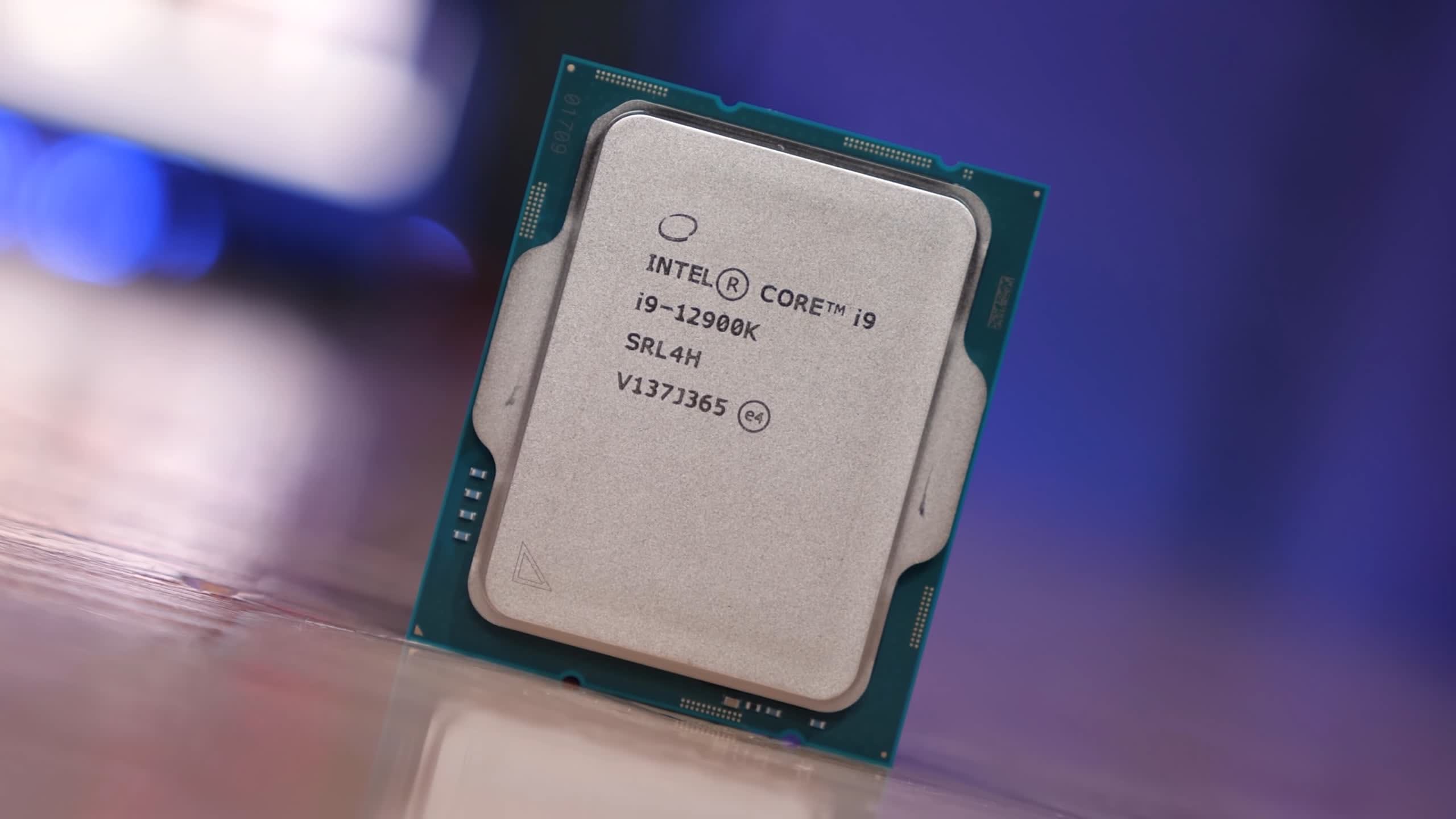
And so, something to look forward to in a few more days... all our Alder Lake content and CPUs will be tested using the latest version of Windows 11, with all updates applied and VBS disabled. All motherboard BIOS will also be updated to the latest revisions and we've switched from the RTX 2080 Ti for application testing and the RTX 3090 for game benchmarks, to the Radeon RX 6900 XT which has been used exclusively for all testing.
Still loads of benchmarking to go before you'll see our first Alder Lake CPU review and there'll be an avalanche of content to follow. Stay tuned.
本文地址:http://www.signalforexgratis.com/jqntnmcf-cgsaeltj-163/
版权声明
本文仅代表作者观点,不代表本站立场。
本文系作者授权发表,未经许可,不得转载。